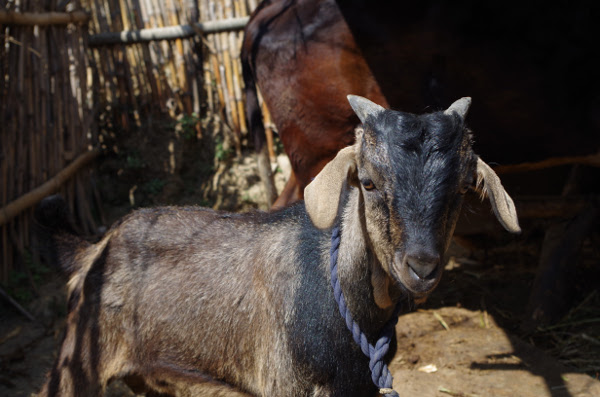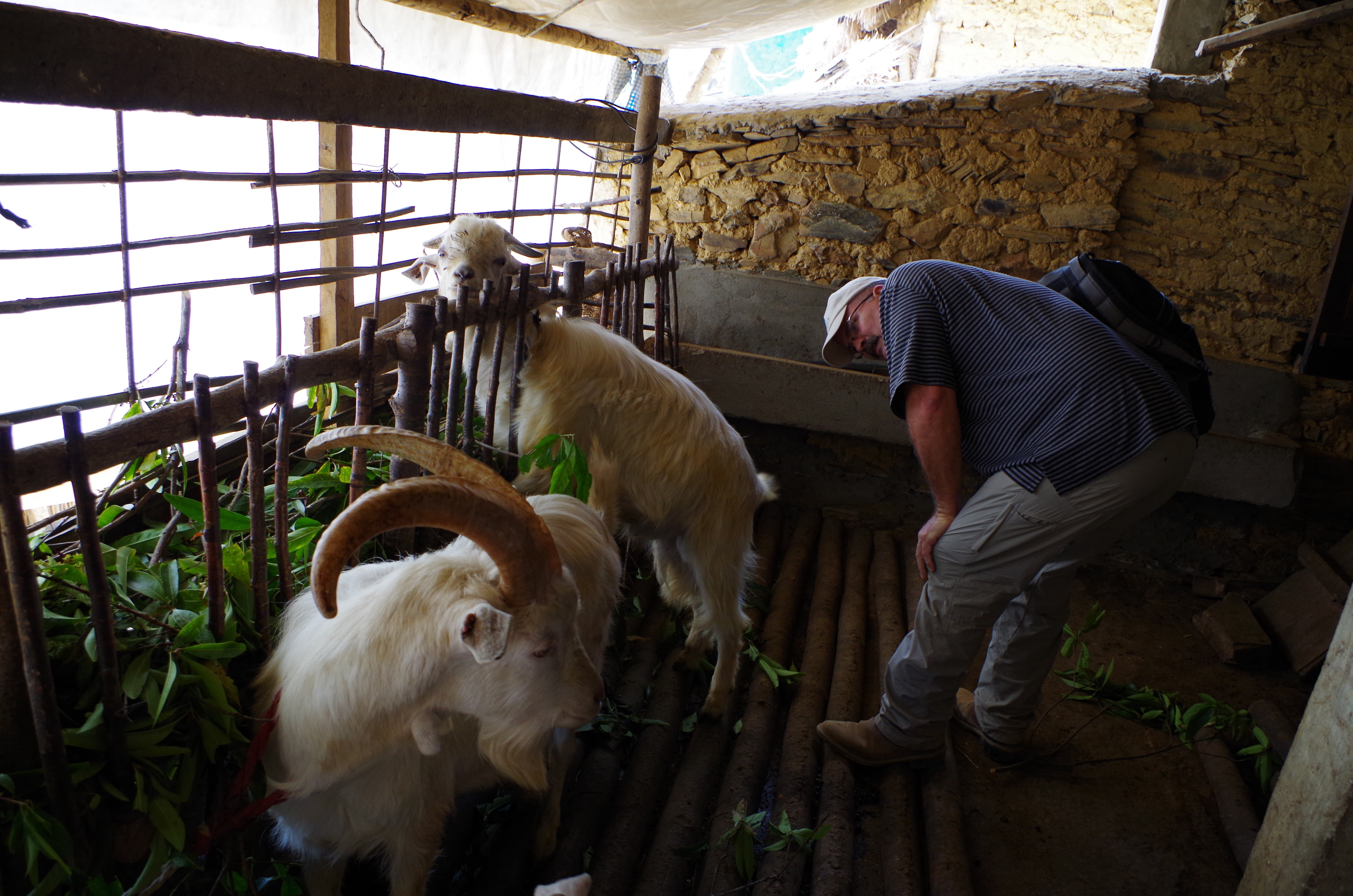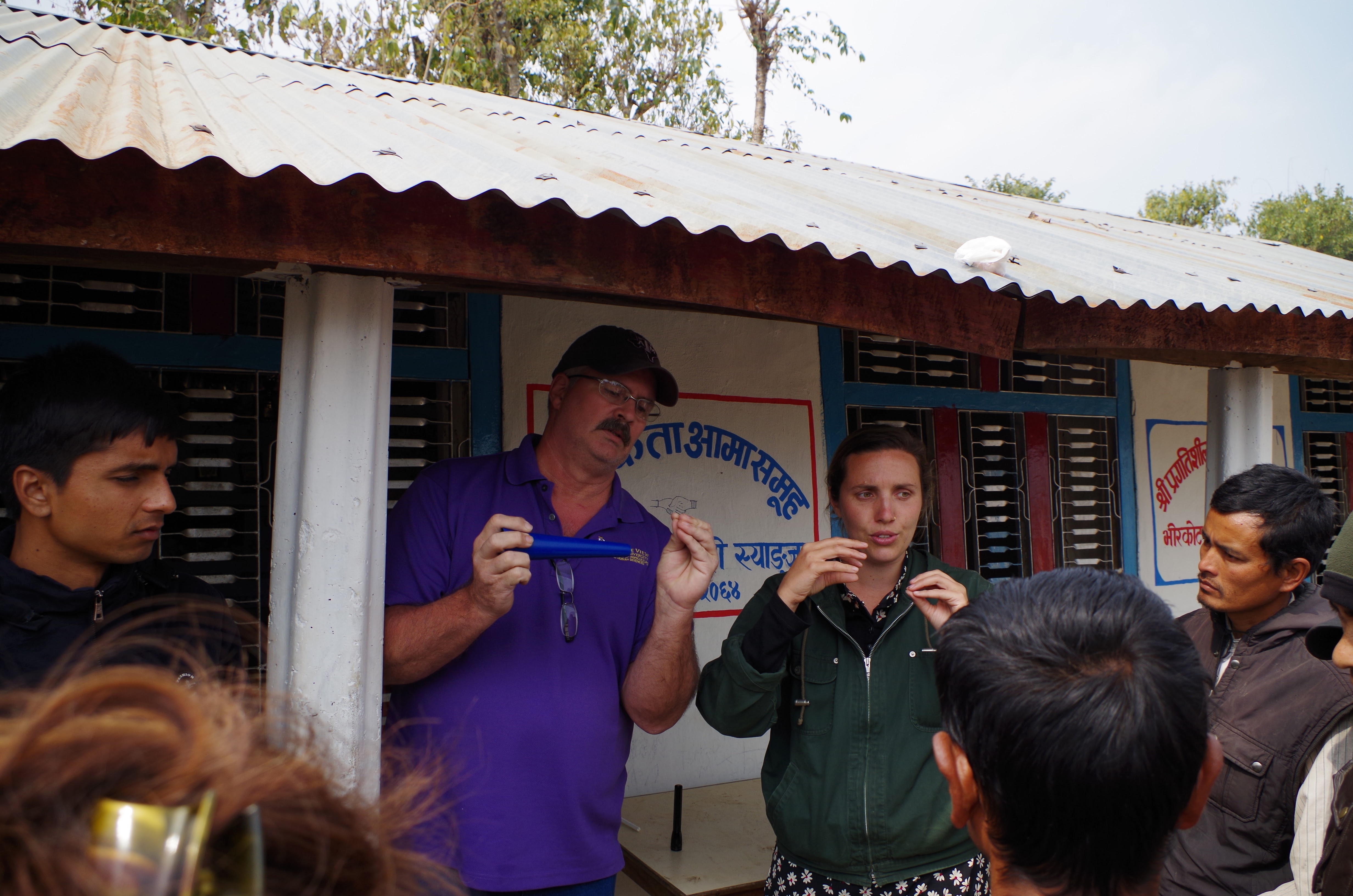
Volunteer Post
Farmer-to-Farmer and Peace Corps Volunteers Help Goat Farmers in Nepal
Garland Mason, Peace Corps Volunteer
Okadi Goat Raising Group reached out to our Farmer-to-Farmer team in Nepal for training on Artificial Insemination technologies and practices. They wanted to target their group members/goat farmers, local service providers, and extension workers to improve their youth-focused goat breeding program in Syangja, Nepal. Dr. Bill Foxworth of Texas Prairie View A&M University facilitated the 6-day training program, which included classroom training and hands-on demonstrations. He explained that “this assignment reaffirmed [his] desire to continue working with limited resource farmers and their countries. [He has] worked in Africa, Europe, North and South America, but this was [his] first opportunity to work in this part of Asia and it was quite rewarding.”

Garland Mason and Joshua O’Malley, two Peace Corps volunteers from neighboring districts, also attended the training. Ms. Mason shared her reflections about the experience:
“The training was a major highlight of my service as a Peace Corps volunteer thus far. We spent the first two days of the training visiting some of the model goat farms of Syangja District and getting set up for the training. In considering the realities of goat production in a Nepali context, I found that it was immensely helpful to hear Dr. Bill’s reflections from his experience and research in America and around the world, as well as those of Mr. Sushil Aryal, of the District Livestock Service Office Syangja District.
“Once we got started with the presentation in Okadi, I found that I was in a unique position to help Dr. Bill with Nepali translation and to help situate the information that Dr. Bill provided within the Nepali context. Because I was already familiar with a lot of the scientific information and technologies that Dr. Bill described, and because I had a sense of what would be familiar and what would be new for the participants, I was able to translate the information in a way that would be accessible and easy to understand, with help from Sushil ji and Dawa Tshiring Tamang of the Agricultural and Forestry University in Chitwan. By the end of the first day of training Dr. Bill, Sushil ji, Dawa ji, and I had developed a rapport that allowed the presentation and subsequent translation to flow efficiently, and be dynamic enough to hold the participants’ interest and attention over the course of the classroom sessions. During the practical sessions, I was able to help Dr. Bill by translating his communications with Sushil ji, as well as his explanations of the practical components for the participants, and by making sure he had access to what he needed to give the demonstrations.

“Attending the training also gave me insight into the technologies that are available and currently in use in Nepal. I live in a comparatively underdeveloped area, and was previously unaware of some of the technologies that are accessible to rural areas of the Western Development Region. Having attended the training, I am excited to strengthen my connection with the Livestock Service Sub-Center at my site, and begin discussions with the District Livestock Office in Kushma about initiating a similar program for my village. Sushil ji, Dawa ji, and Dambar Kumari of the Nepal Agricultural Research Council based in Kathmandu, all expressed their interest in helping to facilitate such a program in Thapathana. Attending the Farmer-to-Farmer training gave me access to professional contacts who will prove invaluable in helping me train my community members, and in strengthening my ability to serve my community. With the help and support of my new professional connections, I am looking forward to bringing the technologies presented at the workshop to my village of Thapathana, Parbat. I am excited to continue to work with them and foster these connections so that other volunteers might be able to take advantage of them as well.

“Sometimes as a Peace Corps volunteer working in a rural agricultural village in Nepal, it is difficult to feel that my limited and United States-centric expertise is useful for villagers that have been working in agriculture in these conditions for their entire lives. Working with Dr. Bill, Sushil ji, Winrock International, and others over the past two weeks made me feel useful and purposeful, re-energized me for my work in Thapathana, and reminded me that I have valuable knowledge and experience to contribute here. My motivation, creativity, and confidence were all strengthened by my ability to partner with Winrock and take part in this training.”
Our Farmer-to-Farmer office in Nepal continues to keep Peace Corps staff abreast of upcoming volunteer trainings located in their zones of influence to further collaboration and the reach of our technical assistance.
